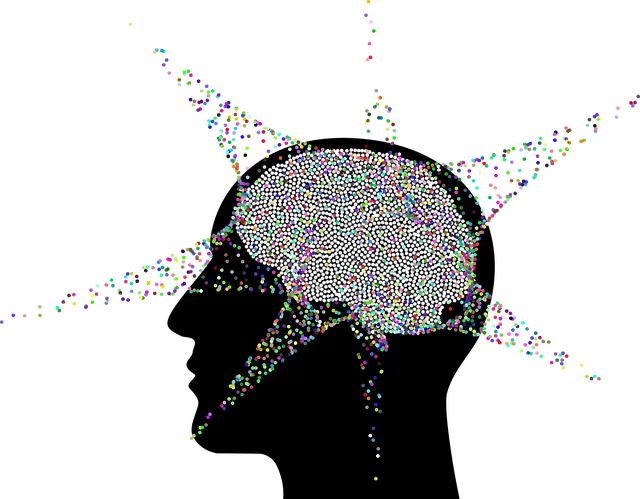Longmont Kaiser Permanente Psychiatry leverages the RFM framework (Resilience, Flexibility, Mastery) for holistic mental well-being improvement. They guide patients through exercises like mindfulness, deep breathing, journaling, and art therapy to enhance emotional regulation, self-awareness, and interpersonal connections. Their success is measured via comprehensive evaluations using structured journaling data, allowing healthcare professionals to track resilience, flexibility, and mindfulness progress over time. This personalized approach ensures programs adapt to community needs while fostering positive mental health outcomes.
“Resilience is a powerful tool in navigating life’s challenges, and Longmont Kaiser Permanente Psychiatry has pioneered innovative approaches through RFM (Recovery, Flexibility, and Mastery) exercises. This article explores how these practices enhance mental well-being, drawing from the successful implementation at Longmont Kaiser Permanente. We’ll delve into practical resilience-building techniques, measure their impact, and provide insights tailored to the healthcare context of Longmont Kaiser Permanente Psychiatry.”
- Understanding RFM and Its Role in Resilience Building at Longmont Kaiser Permanente Psychiatry
- Implementing Effective Resilience Exercises for Mental Well-being
- Measuring Success: Evaluating the Impact of RFM Programs at Longmont Kaiser Permanente
Understanding RFM and Its Role in Resilience Building at Longmont Kaiser Permanente Psychiatry

At Longmont Kaiser Permanente Psychiatry, understanding the RFM (Resilience, Flexibility, and Mastery) framework is key to helping patients build resilience. This approach recognizes that mental health and well-being are deeply connected to an individual’s ability to navigate life’s challenges with adaptability and inner strength. By focusing on these three dimensions, professionals at Longmont Kaiser Permanente Psychiatry guide patients in developing a robust self-care routine for better mental health.
Resilience is cultivated through various exercises designed to enhance conflict resolution techniques and promote positive coping strategies. Flexibility involves learning to adapt to changing circumstances, while Mastery equips individuals with skills to effectively manage their emotions and behaviors. Through these practices, patients are empowered to build inner strength, enabling them to face life’s uncertainties head-on. This holistic approach is tailored to meet the unique needs of each individual, fostering a supportive environment for long-term mental wellness.
Implementing Effective Resilience Exercises for Mental Well-being

Resilience exercises play a pivotal role in bolstering mental well-being, and Longmont Kaiser Permanente psychiatry emphasizes their importance as effective tools for navigating life’s challenges. Incorporating these practices into daily routines can significantly enhance an individual’s ability to cope with stress, anxiety, and adversity. The key lies in finding activities that foster positive thinking and emotional regulation.
Longmont Kaiser Permanente psychiatry suggests a multitude of resilience-building strategies, from mindfulness meditation and deep breathing exercises to creative outlets like journaling and art therapy. These practices not only promote self-awareness but also encourage empathy building, a vital component for fostering strong interpersonal connections. The Mental Wellness Podcast Series Production offers a wealth of guidance on integrating such exercises into one’s life, catering to diverse preferences and needs.
Measuring Success: Evaluating the Impact of RFM Programs at Longmont Kaiser Permanente

Measuring success is a vital component when implementing any resilience-building program, and Longmont Kaiser Permanente Psychiatry has been at the forefront of evaluating the impact of RFM (Resilience, Flexibility, and Mindfulness) initiatives. Through a comprehensive approach, they assess the effectiveness of these programs by tracking improvements in participants’ mental wellness. This involves analyzing self-reported data from individuals engaging in structured journaling exercises designed to enhance self-awareness and coping skills development.
The Mental Wellness Journaling Exercise Guidance provided within RFM sessions encourages individuals to reflect on their emotional responses and track their progress over time. By regularly reviewing these journals, healthcare professionals can gauge the growth of resilience, flexibility, and mindfulness practices among patients. This qualitative data is invaluable in understanding the transformative power of such exercises, ensuring that Longmont Kaiser Permanente Psychiatry’s programs continue to foster positive mental health outcomes and adapt to the evolving needs of its community.
Resilience is a pivotal aspect of mental well-being, and Longmont Kaiser Permanente Psychiatry has recognized this with their innovative RFM (Resilience, Flexibility, and Mastery) programs. By integrating specific resilience building exercises into their approach, the team at Longmont Kaiser Permanente offers valuable tools to enhance patients’ ability to navigate challenges. The measured success of these programs highlights their effectiveness in improving mental health outcomes for individuals within the community. This evidence-based strategy serves as a powerful model for healthcare providers worldwide, demonstrating that investing in resilience training can lead to profound and lasting positive changes.






